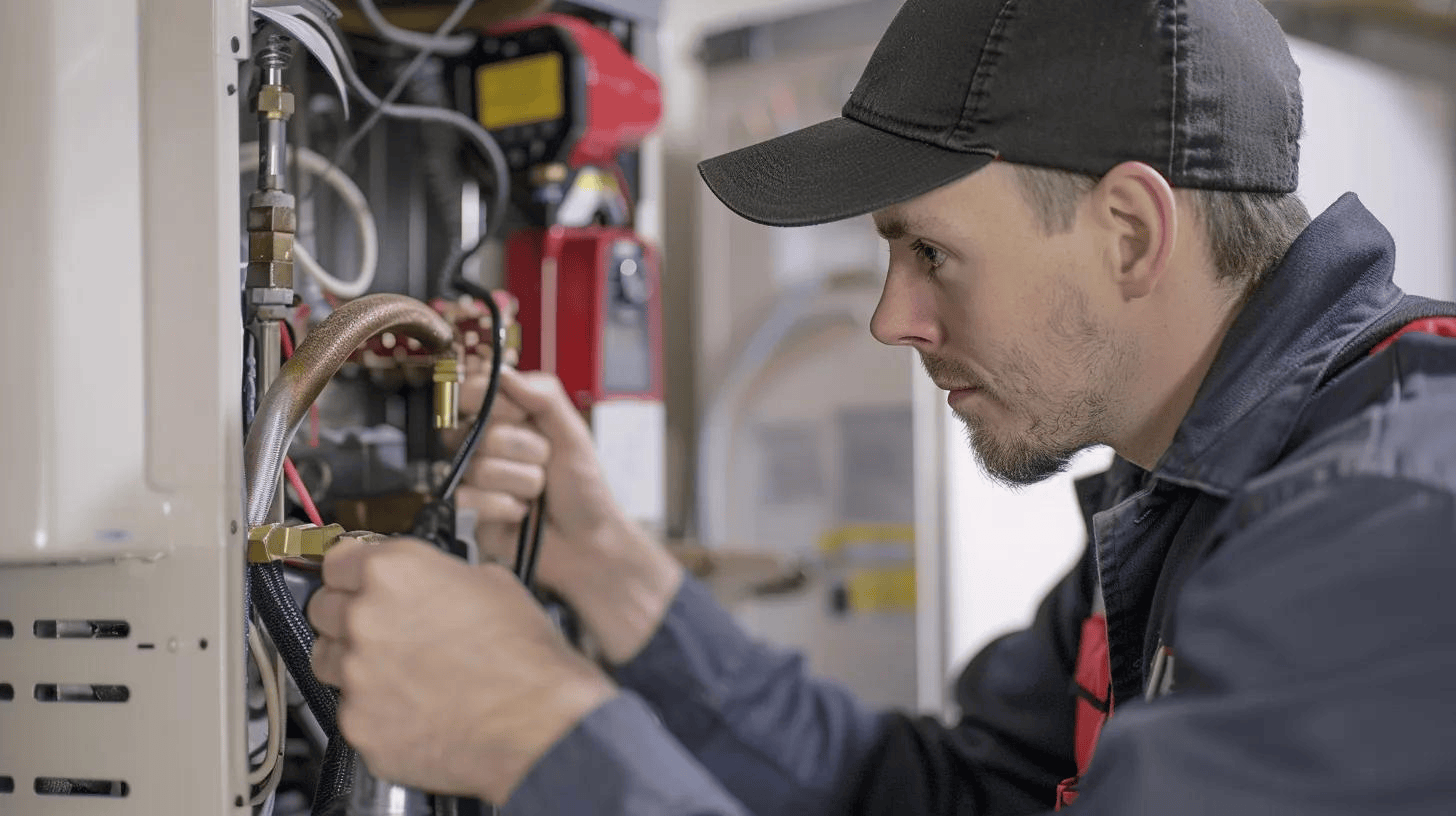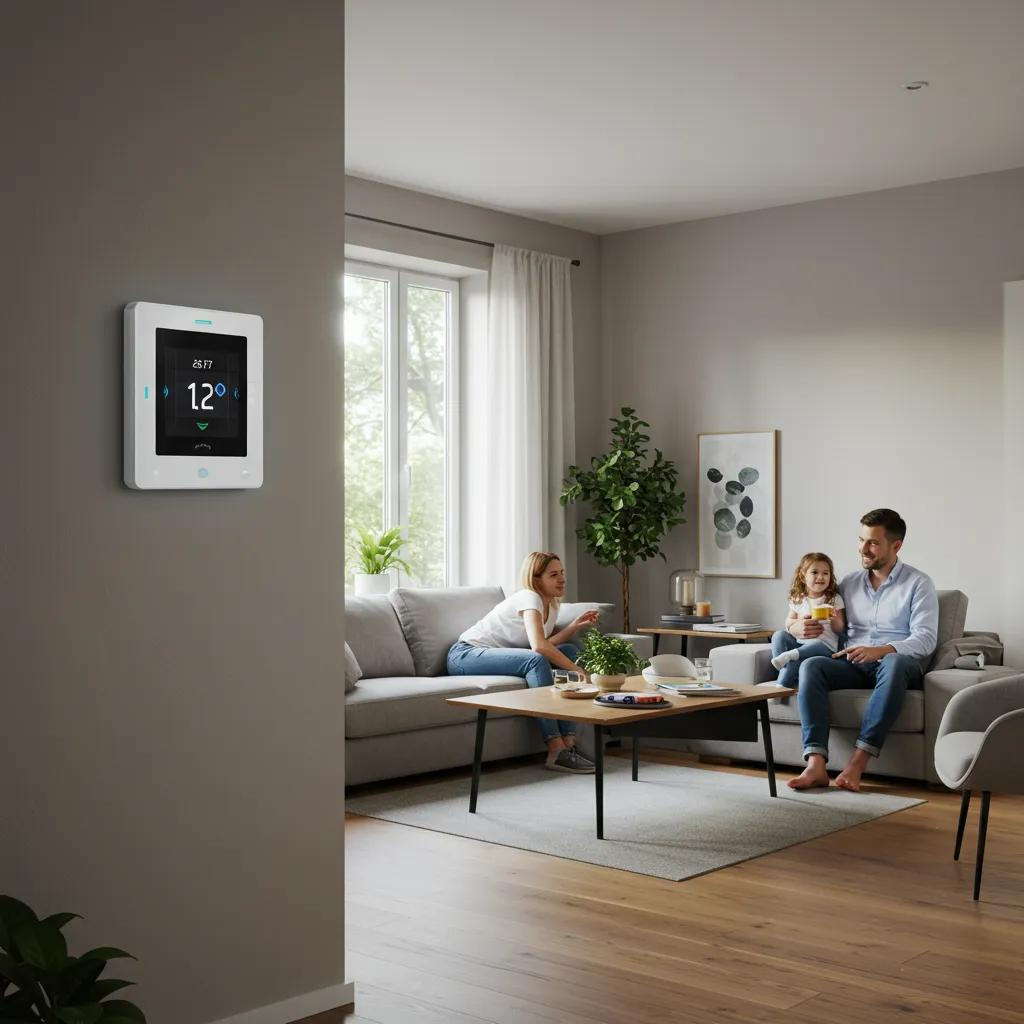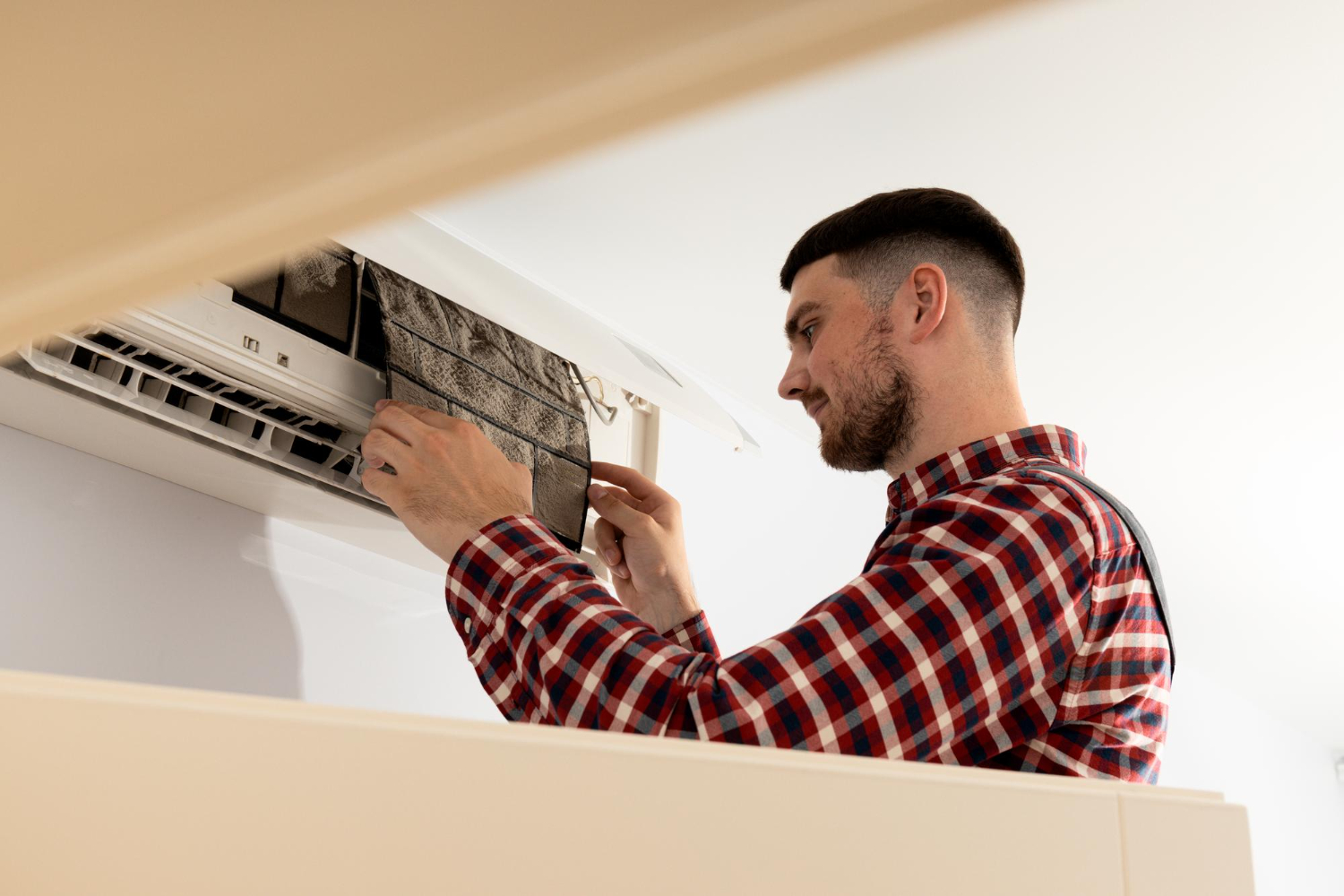Recognizing Early Warning Signs of HVAC Failure in Paso Robles: How to Spot Problems Before They Become Costly Emergencies
Imagine the stress of your heating or cooling system suddenly failing during a hot Paso Robles summer or a chilly winter night. HVAC breakdowns aren't just inconvenient; they can be costly and disruptive. But what if you could see the disaster coming? Your HVAC system often provides subtle warnings before it completely gives out. Recognizing these early signs can empower you to take proactive steps, potentially saving you significant money, stress, and discomfort by addressing issues before they escalate into full-blown emergencies. This guide will help Paso Robles residents understand what their HVAC system might be trying to tell them and why acting early is always the smarter choice.
Is It a Warning Sign or an Emergency? Know the Difference
Before diving into specific signs, it's helpful to distinguish between a warning sign and an immediate emergency. An HVAC emergency requires immediate attention due to potential safety hazards or severe property damage, such as:
- The smell of natural gas or burning odors that don't quickly dissipate.
- Visible sparks or smoke.
- Complete system failure during extreme temperatures where safety is at risk.
- Carbon monoxide detector alarms (if you have a gas furnace).
Warning signs, on the other hand, indicate that a problem is developing or that your system isn't operating optimally. These are the cues that allow for planned diagnosis and repair, ideally preventing the emergency scenario entirely.
Your HVAC is Talking to You: Common Warning Signs Explained
Paying attention to the sounds, smells, and performance of your heating and cooling system can reveal underlying issues. Here are some common warning signs to look out for:
Unusual Noises: Your HVAC system shouldn't sound like a symphony of chaos. Different noises can point to specific problems:
- Banging or Clanking: Often suggests loose parts within the blower or motor assembly. It could also indicate an issue with the indoor or outdoor unit.
- Screeching or Squealing: This high-pitched sound frequently signals a problem with a belt slipping or worn-out motor bearings that need lubrication or replacement.
- Hissing or Bubbling: A hissing sound can point to a refrigerant leak, while bubbling might occur in the refrigerant lines. Refrigerant leaks are serious and require professional attention.
- Rattling: May simply be a loose panel or debris caught in the unit. However, it could also indicate loose components internally.
- Clicking: While a consistent clicking sound at startup and shutdown is usually normal, continuous clicking, especially from the outdoor unit, could indicate an electrical control problem or a failing capacitor.
Weak or Uneven Airflow: If air isn't blowing as strongly from your vents, or if some rooms are significantly hotter or colder than others, it could be a sign of trouble. Potential causes include a clogged air filter (the easiest fix), ductwork issues like leaks or blockages, or a problem with the blower motor.
Inconsistent Temperatures: When your home isn't reaching the temperature set on the thermostat, or temperatures fluctuate wildly, it's a clear indicator of inefficiency. This could be due to a malfunctioning thermostat, low refrigerant levels, duct problems, or the system struggling due to age or a larger underlying issue.
Strange or Foul Odors: Unusual smells emanating from your vents should never be ignored:
- Musty or Moldy: Often points to mold or mildew buildup within the ductwork or on the evaporator coil, affecting indoor air quality.
- Burning or Electrical: A smell of burning plastic or melting wire could indicate an electrical issue within the system. Turn off the system immediately if you detect this and call a professional.
- Gas or Chemical: A rotten egg smell near a gas furnace could indicate a gas leak (natural gas is odorless, but a chemical is added for detection). A sweet, chemical smell might suggest a refrigerant leak. If you smell gas, evacuate your home immediately and call your gas company and then an HVAC professional.
Spike in Energy Bills: If your utility bills suddenly jump without a significant change in usage, your HVAC system is likely working harder than it should. Reduced efficiency is a common warning sign caused by clogged filters, dirty coils, aging components, or other issues forcing the system to consume more power to maintain temperature.
Frequent Cycling (Short Cycling): When your HVAC system turns on and off frequently in short bursts, it's called short cycling. This could be due to an oversized system, a malfunctioning thermostat, airflow blockage, or refrigerant issues. Short cycling prevents the system from completing a full heating or cooling cycle, leading to reduced comfort and increased wear and tear.
Visible Water Leaks or Excessive Moisture: Puddles or excessive moisture around your indoor unit (like the furnace or air handler) can indicate a clogged condensate drain line, preventing moisture removed from the air during cooling from draining properly. While sometimes a simple fix, it can also be caused by more serious issues like a refrigerant leak resulting in ice formation that melts.
Ice Formation: Finding ice on your outdoor AC unit or on the indoor evaporator coil is never normal. It's often caused by low refrigerant levels or poor airflow (like a very dirty filter or blocked vents), preventing proper heat absorption and leading to freezing. This issue can severely damage the compressor if not addressed.
Increased Dust or Humidity: If you notice more dust accumulating than usual or excessive humidity in your home, your HVAC system may not be filtering air or managing humidity levels effectively. Dirty coils, duct leaks, or system age can contribute to these problems.
System Age: While not a "sign" you'll hear or see, the age of your system is a critical factor. Air conditioners and heat pumps typically last 10-15 years, while furnaces can last 15-20 years with proper maintenance. If your system is approaching or past its average lifespan and you're noticing performance issues, it's providing a "warning" that its time may be nearing an end.
The High Cost of Waiting: Why Ignoring Signs is Risky
Ignoring early warning signs might seem harmless at first, but it almost always leads to more significant problems and higher costs down the line.
- Escalation to Costly Emergency Repairs: Emergency HVAC repairs can be significantly more expensive than standard scheduled service calls—sometimes 50% to 100% higher . Addressing an issue during regular business hours is far more budget-friendly than needing service at night, on a weekend, or during a holiday rush.
- Higher Energy Bills: A system operating with unresolved issues like clogged filters or low refrigerant works harder and uses more energy to achieve the same result. This directly translates to inflated utility bills.
- Reduced System Lifespan & Premature Replacement: Minor issues left unaddressed can put undue strain on critical components like the compressor or motor, leading to premature failure of the entire system. Proactive repairs and maintenance, conversely, can help well-maintained systems last much longer .
- Compromised Indoor Air Quality and Comfort: Problems like mold growth from clogged drains or poor filtration from airflow issues directly impact the air you breathe, potentially causing health issues and reducing home comfort.
- Potential Property Damage: Leaks that start small can lead to significant water damage, mold growth, and structural issues if not fixed promptly.
- Potential Safety Hazards: Ignoring warning signs like electrical smells or suspected gas leaks can have dangerous or even deadly consequences.
Taking Action in Paso Robles: What to Do When You Spot a Sign
If you notice one or more of these warning signs, don't panic, but don't delay. Here's a simple action plan for Paso Robles residents:
- Observe and Note: Identify the specific sign(s). Where is the noise coming from? What does the smell resemble? How is the performance different?
- Basic, Safe Checks:
- Check your air filter. If it's dirty, replace it. A clogged filter is one of the most common culprits for various performance issues.
- Ensure your thermostat is set correctly and has working batteries (if applicable).
- Check around your outdoor unit for debris, blockages, or obvious damage.
- Know When to Call a Professional:
- If you detect smells of burning, gas, or chemicals, turn off the system and take immediate safety precautions as mentioned above.
- If you see visible sparks, smoke, or severe water leaks.
- If the system completely fails during extreme weather.
- For any unusual noise, smell, airflow issue, temperature inconsistency, or cycling problem that persists after basic checks.
- If you see ice formation on the system.
A professional HVAC technician can accurately diagnose the root cause of the warning sign and recommend the necessary repair. Addressing the issue now, while it's a warning sign, is significantly better than waiting for a complete breakdown.
Prevention is Key: The Power of Regular Maintenance
The best way to catch warning signs early or prevent them altogether is through regular preventative maintenance. Scheduling tune-ups for your heating and cooling systems ensures that trained eyes examine your equipment before peak seasons. Technicians can identify worn parts, clean components reducing efficiency, and catch minor issues before they develop into major problems. Studies indicate that preventive maintenance can reduce the risk of system breakdowns significantly. Many preventative maintenance visits identify issues that would have eventually caused emergency shutdowns.
Repair or Replace? When Signs Indicate the End
Sometimes, warning signs aren't just calls for repair; they signal that your system is nearing the end of its useful life. If your system is old (past its average lifespan) and the cost of the necessary repair is significant a common guideline suggests that if the repair cost exceeds 50% of the cost of a new system, replacement is generally more economical . An HVAC professional can help you weigh the costs of repeated repairs against the long-term benefits of a more efficient, reliable new system, especially when frequent issues arise.
Conclusion
Your HVAC system is a major investment in your Paso Robles home's comfort and air quality. By learning to recognize its warning signs the unusual noises, smells, or performance issues you become an active participant in its care. Acting promptly when you spot a problem can save you from the inconvenience and significant expense of emergency repairs, improve your system's efficiency, extend its lifespan, and maintain a comfortable, healthy indoor environment. Don't wait until you're shivering or sweltering to address an issue. Be observant, take the initial steps, and call a local HVAC professional at the first sign of trouble.
Schedule a check-up or repair service with a trusted Paso Robles HVAC professional today and address those warning signs before they become emergencies.
FAQs
Q: How often should I change my HVAC air filter?
A: This depends on the type of filter and your living conditions (pets, allergies, number of occupants). A good rule of thumb is every 1-3 months for standard filters. Check it monthly and change it when it appears dirty.
Q: Is a small water puddle near my indoor unit a big deal?
A: Yes, any water leak is a sign something isn't draining correctly or potentially a more serious issue like a refrigerant leak. It should be investigated by a professional promptly to prevent water damage and mold growth.
Q: My system is making a strange noise, but it still seems to be heating/cooling. Is it okay to wait?
A: While it might still be functioning, unusual noises are almost always a warning sign of a developing problem. Waiting will likely allow the issue to worsen, potentially causing more damage and leading to a more expensive repair or breakdown. It's best to have it checked out early.
Q: How long do HVAC systems typically last?
A: Central air conditioners and heat pumps typically last 10-15 years. Furnaces usually last 15-20 years. Regular maintenance is key to helping your system reach or exceed its expected lifespan.
Q: Can I troubleshoot HVAC problems myself?
A: There are basic checks you can safely perform, such as checking the thermostat settings, replacing the air filter, and ensuring vents aren't blocked or the outdoor unit area is clear. However, for anything beyond these simple steps, especially involving electrical components, refrigerant, or complex mechanical issues, it's always safest and most effective to call a qualified HVAC technician.


HVAC Financing Available!
Get 0% Financing for 12 Months with Deferred Interest! Enjoy no payments and no interest on select plans.





Customer Testimonials







